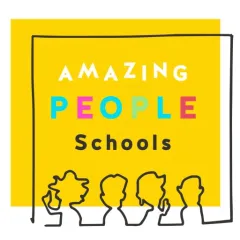Who Am I?
Rigoberta Menchú was born into a poor indigenous family in Guatemala. Growing up, she helped with the family’s agricultural business and also picked coffee beans on one of the large plantations. As a member of the Catholic Church, she became a social reform activist. She joined the Committee of the Peasant Union (Comité de Unidad Campesina/CUC) despite the considerable risks involved. Government forces had killed her father, mother and younger brother for their activism in protesting the government’s harsh treatment of indigenous Guatemalans. Rigoberta became increasingly active in the CUC. She taught herself Spanish and began to organise protests and strikes.
What Am I Known For?
When she was 22 years old, Rigoberta had to flee her home in Guatemala and make her way to Mexico. She did not give up the fight, and in Mexico, she joined international efforts to achieve social justice for indigenous peoples and victims of government repression in her native country. In 1983, she courageously told her story to Elisabeth Burgos Debray and the book I, Rigoberta Menchú, became internationally renowned. She also featured as the narrator in a film called When the Mountains Tremble, which describes the struggles and difficulties of the Mayan people. Rigoberta became a skilled public speaker and organiser and was awarded the Nobel Peace Prize in 1992 “in recognition for her work for social justice and ethno-cultural reconciliation based on respect for the rights of indigenous peoples.” In her acceptance speech, she expresses the love she feels for her people and for our earth, as well as the conviction behind her brave activism for what she believes in.
“When evaluating the overall significance of the award of the Peace Prize, I would like to say some words on behalf of all those whose voice cannot be heard or who have been repressed for having spoken their opinions, of all those who have been marginalized, who have been discriminated, who live in poverty, in need, of all those who are the victims of repression and violation of human rights. Those who, nevertheless, have endured through centuries, who have not lost their conscience, determination, and hope.”
How About You?
Do you have the courage to speak up for what you believe in, even if it may get you into trouble?
Indigenous people are often (mis)represented in films and books. Discuss examples of these and consider how to be better informed. To explore how to understand and support indigenous people further, go to Survival International or the Indigenous Environmental Network.
Other Amazing People (you can find them on the website)
Other indigenous voices that can be explored on our website are Mākereti Papakura and Sacagawea. Discover their very different stories and how being indigenous affected their lives.
Other Useful Resources (available on the website)
If you are interested in exploring other indigenous people, please check out our Amazing Indigenous People resource in our Diverse Voices section.
Subscribers can explore this resource by logging in. If you are not a subscriber, you can access this resource, and many more, by starting a free trial.
Photo: Cancillería Ecuador, CC BY-SA 2.0

![8b49a0c98ec527ed729a61a1076a0e81c399e2a3[1]](https://about.amazingpeopleschools.com/wp-content/uploads/2023/07/Rigoberta_Menchu_6982895712-cropped1.jpg)